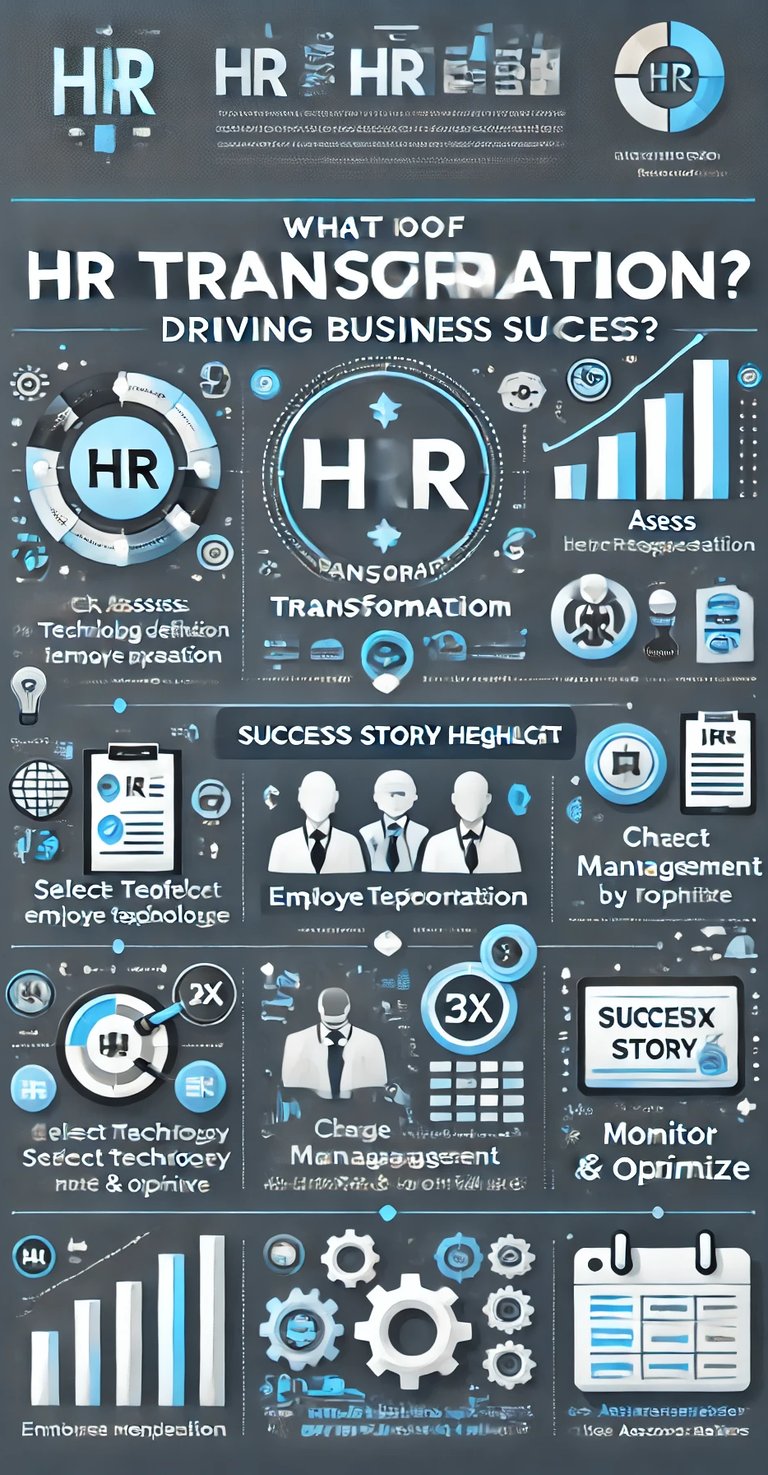HR Transformation: The Strategic Leap for Future-Ready Businesses..
In the digital age, businesses are navigating unprecedented changes—from evolving workforce expectations to rapid technological advancements. To stay competitive, organizations must rethink their human resources strategies through HR Transformation—a shift from traditional HR functions to a strategic, tech-enabled powerhouse driving business success.
Anuj Kathuria
1/13/20252 min read


In the digital age, businesses are navigating unprecedented changes—from evolving workforce expectations to rapid technological advancements. To stay competitive, organizations must rethink their human resources strategies through HR Transformation—a shift from traditional HR functions to a strategic, tech-enabled powerhouse driving business success.
According to a 2024 report by Deloitte, 72% of global organizations consider HR transformation crucial for achieving long-term business goals, yet only 35% feel fully prepared to embark on this journey. So, what does successful HR transformation look like, and how can businesses get it right? Let’s explore.
What is HR Transformation?
HR Transformation is the process of redesigning and realigning HR functions to:
Leverage Technology: Automating repetitive tasks using AI, machine learning, and cloud-based systems
Focus Strategically: Shifting from administrative functions to workforce planning, talent management, and cultural development
Enhance Employee Experience: Improving engagement, productivity, and retention
🔹 Stat Insight: Companies leveraging digital HR tools experience a 23% increase in employee satisfaction and a 30% reduction in turnover rates, as per a survey by PwC.
Why Does HR Transformation Matter?
Adapting to the Future of Work: Remote work, gig economies, and diverse global teams require agile and adaptive HR practices.
Data-Driven Decision Making: Modern HR systems offer insights into performance, turnover trends, and engagement levels, empowering better business decisions.
Improved Talent Acquisition: AI-powered recruiting reduces time-to-hire by 40% while improving candidate experience.
Enhanced Compliance: Automated systems ensure adherence to evolving labor laws and regulations.
🔹 Data Insight: McKinsey reports that digitally transformed HR departments deliver 2.5x higher financial performance than their non-transformed peers.
Key Pillars of HR Transformation
1. Technology Integration
Adoption of cloud-based HRMS platforms for payroll, benefits, and performance management
AI-driven analytics for recruitment and employee sentiment analysis
Chatbots for 24/7 employee support
🔹 Real Example: Unilever implemented AI-based screening for job candidates, reducing hiring time by 75% and boosting diversity by 16%.
2. Redefining HR Processes
Automating time-intensive tasks such as onboarding and performance evaluations
Adopting agile HR practices for faster decision-making
🔹 Insight: Companies with agile HR practices are 1.8x more likely to outperform their competitors, according to a Gartner study.
3. Employee Experience Focus
Personalized learning and development programs
Flexible work arrangements and mental health support initiatives
Continuous feedback and recognition systems
🔹 Data Point: Companies prioritizing employee experience see a 25% boost in productivity and a 41% decrease in absenteeism (Gallup).
Steps to Implement HR Transformation
Assess Current State: Identify inefficiencies and bottlenecks in HR processes.
Define Clear Objectives: Set measurable goals such as reducing time-to-hire, improving engagement scores, or increasing diversity.
Select the Right Technology: Choose platforms that integrate seamlessly with existing systems.
Change Management: Engage leadership and employees to drive cultural acceptance.
Monitor and Optimize: Continuously analyze performance metrics to refine strategies.
Overcoming Common Challenges
1. Resistance to Change
Solution: Transparent communication and leadership buy-in foster acceptance.
2. Skill Gaps
Solution: Invest in upskilling HR professionals in data analytics and digital tools.
3. Budget Constraints
Solution: Demonstrating ROI through pilot projects helps secure executive support.
The Future of HR Transformation
🔹 AI and Predictive Analytics: Automated insights for workforce planning
🔹 Employee Well-being: Holistic mental health and wellness initiatives
🔹 Data-Driven Personalization: Custom learning paths and career development plans
🔹 Diversity, Equity, and Inclusion: Data-driven strategies to build inclusive work cultures
Final Thoughts
HR Transformation is no longer optional—it’s essential for businesses to remain relevant and competitive. By leveraging technology, redesigning processes, and fostering an inclusive culture, organizations can unlock new levels of innovation and growth.
🔹 Ready to Transform? Partner with Ascendara for tailored HR solutions that drive measurable results.
